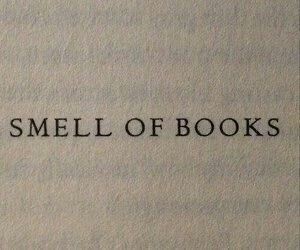Just Saw This On Pinterest And It Hit Me Like A Truck

just saw this on pinterest and it hit me like a truck
More Posts from Dostoevskyswife and Others

Mahmoud Darwish, Memory for Forgetfulness: August, Beirut, 1982 (trans. Ibrahim Muhawi) [ID'd]
on context: "[set during] the 1982 Israeli invasion of Lebanon and the shelling of Beirut [...] Memory for Forgetfulness is an extended reflection on the invasion and its political and historical dimensions. It is also a journey into personal and collective memory. What is the meaning of exile? What is the role of the writer in time of war? What is the relationship of writing (memory) to history (forgetfulness)?" (source)

fuck it I’m drunk. The points being articulated in TBK are literally incoherent! Every single idea established is then torn down--- either parodied, deconstructed, inverted, or paralelled at some other point, to such a degree that it turns into idealogical and philosophical soup. "Pro and Contra", as is stated. The ending is bleak, underwhelming, and ineffectual! Alyosha's speech at the end is a failure. He is trying SO hard to follow the doctrine that Father Zossima gave him, that he is needed in the world, he is trying so hard to say the right thing to these poor children but his words pale in comparison to the great suffering that has transpired and will continue to transpire ceaselessly. These children then hear his words and exalt him and the Karamazov family name, that stands for all that is base and sick in the world. Ivan is still sick. His ideology and intellect, all he is and all he has, has failed him. He has a very long reckoning yet to come. Dmitry is still imprisoned and in purgatory. Absolutely everyone has completely failed to acknowledge that Smerdyakov was a human being and their family member, despite the entire idea being repeated, ad nauseum, that we are ALL meant to be "servants to our servants and servants to all men" and our brothers keepers. Despite or even because of all of this, the book is extraordinary. Though he had ideas that any particular reader may disagree with, this incoherence cannot be an accident. Dostoevsky can convey a point to exactness, in all it's complexity, to a degree that rivals any author who has ever lived. Then I am reminded that this was not even meant to be THE Book, this was only ever the PRELUDE to THE Book. This was all just the set up for something. And the payoff of whatever was supposed to be "The Life of a Great Sinner" was robbed from us by his death! And so Dostoevsky himself departs, and takes all the answers with him, into the great mystery. And we are left only with the endless questions, the ineffectual answers, the contradictions, the speculations, and the mystery. Exactly as we are in regards to the questions and ideas posed by all of religion itself. It's the kind of allegory that would be much too on the nose if you tried to put it into a film or a story.
“They were only speaking the part of god that they themselves could glimpse. And this truth was only as small as they themselves were small.”
— Lauren Groff, The Vaster Wilds

It's a pale, silent day: I would like to be walking in a wood, far away.
Katherine Mansfield in a diary entry dated 21 October 1918


Franz Kafka
Forget everything. Open the windows. Clear the room. The wind blows through it. You see only its emptiness, you search in every corner and don't find yourself.
— Franz Kafka, Diaries 1914-1923




-
 tabriseventh liked this · 3 weeks ago
tabriseventh liked this · 3 weeks ago -
 hamburgerharbinger liked this · 3 weeks ago
hamburgerharbinger liked this · 3 weeks ago -
 sweepers468 liked this · 3 weeks ago
sweepers468 liked this · 3 weeks ago -
 kodiie liked this · 3 weeks ago
kodiie liked this · 3 weeks ago -
 petrichorandozone liked this · 3 weeks ago
petrichorandozone liked this · 3 weeks ago -
 papermachefawn liked this · 3 weeks ago
papermachefawn liked this · 3 weeks ago -
 cannibalisticvoyeurism liked this · 3 weeks ago
cannibalisticvoyeurism liked this · 3 weeks ago -
 cannibalisticvoyeurism reblogged this · 3 weeks ago
cannibalisticvoyeurism reblogged this · 3 weeks ago -
 charlieishere2 liked this · 3 weeks ago
charlieishere2 liked this · 3 weeks ago -
 baby-lia-v liked this · 3 weeks ago
baby-lia-v liked this · 3 weeks ago -
 v-l-vt liked this · 3 weeks ago
v-l-vt liked this · 3 weeks ago -
 thehollowedangel liked this · 3 weeks ago
thehollowedangel liked this · 3 weeks ago -
 kimokie liked this · 3 weeks ago
kimokie liked this · 3 weeks ago -
 littlemisssunshines-things liked this · 3 weeks ago
littlemisssunshines-things liked this · 3 weeks ago -
 areadingturtle reblogged this · 3 weeks ago
areadingturtle reblogged this · 3 weeks ago -
 areadingturtle liked this · 3 weeks ago
areadingturtle liked this · 3 weeks ago -
 kysonstage liked this · 3 weeks ago
kysonstage liked this · 3 weeks ago -
 vesper-666 liked this · 3 weeks ago
vesper-666 liked this · 3 weeks ago -
 niofthedust liked this · 3 weeks ago
niofthedust liked this · 3 weeks ago -
 horsewolfgirl27 liked this · 3 weeks ago
horsewolfgirl27 liked this · 3 weeks ago -
 wormuniversity liked this · 3 weeks ago
wormuniversity liked this · 3 weeks ago -
 now-i-know-that-sounds-bad liked this · 3 weeks ago
now-i-know-that-sounds-bad liked this · 3 weeks ago -
 radisyn reblogged this · 3 weeks ago
radisyn reblogged this · 3 weeks ago -
 radisyn liked this · 3 weeks ago
radisyn liked this · 3 weeks ago -
 eyeofneewtt liked this · 3 weeks ago
eyeofneewtt liked this · 3 weeks ago -
 bondingforbeans reblogged this · 3 weeks ago
bondingforbeans reblogged this · 3 weeks ago -
 2-59-amwater liked this · 3 weeks ago
2-59-amwater liked this · 3 weeks ago -
 chaosthestinky liked this · 3 weeks ago
chaosthestinky liked this · 3 weeks ago -
 sir-companioncube liked this · 3 weeks ago
sir-companioncube liked this · 3 weeks ago -
 thespian-and-lesbian liked this · 3 weeks ago
thespian-and-lesbian liked this · 3 weeks ago -
 ey-theys-was-coronas reblogged this · 3 weeks ago
ey-theys-was-coronas reblogged this · 3 weeks ago -
 ey-theys-was-coronas liked this · 3 weeks ago
ey-theys-was-coronas liked this · 3 weeks ago -
 pbscore liked this · 3 weeks ago
pbscore liked this · 3 weeks ago -
 blue-jayss liked this · 3 weeks ago
blue-jayss liked this · 3 weeks ago -
 illburnyouontheceiling reblogged this · 3 weeks ago
illburnyouontheceiling reblogged this · 3 weeks ago -
 illburnyouontheceiling liked this · 3 weeks ago
illburnyouontheceiling liked this · 3 weeks ago -
 oompala reblogged this · 3 weeks ago
oompala reblogged this · 3 weeks ago -
 oompala liked this · 3 weeks ago
oompala liked this · 3 weeks ago -
 17agedbacon liked this · 3 weeks ago
17agedbacon liked this · 3 weeks ago -
 televangilista reblogged this · 3 weeks ago
televangilista reblogged this · 3 weeks ago -
 televangilista liked this · 3 weeks ago
televangilista liked this · 3 weeks ago -
 femmehysteria liked this · 3 weeks ago
femmehysteria liked this · 3 weeks ago -
 octopussy-gardenn liked this · 3 weeks ago
octopussy-gardenn liked this · 3 weeks ago -
 ziggy-stardust-drinks-napalm reblogged this · 3 weeks ago
ziggy-stardust-drinks-napalm reblogged this · 3 weeks ago -
 ziggy-stardust-drinks-napalm liked this · 3 weeks ago
ziggy-stardust-drinks-napalm liked this · 3 weeks ago -
 zzalina liked this · 3 weeks ago
zzalina liked this · 3 weeks ago -
 deadfishes liked this · 3 weeks ago
deadfishes liked this · 3 weeks ago -
 pens-and-paperbacks liked this · 3 weeks ago
pens-and-paperbacks liked this · 3 weeks ago -
 fandomkingdom18 liked this · 3 weeks ago
fandomkingdom18 liked this · 3 weeks ago -
 pookie5243 liked this · 3 weeks ago
pookie5243 liked this · 3 weeks ago
